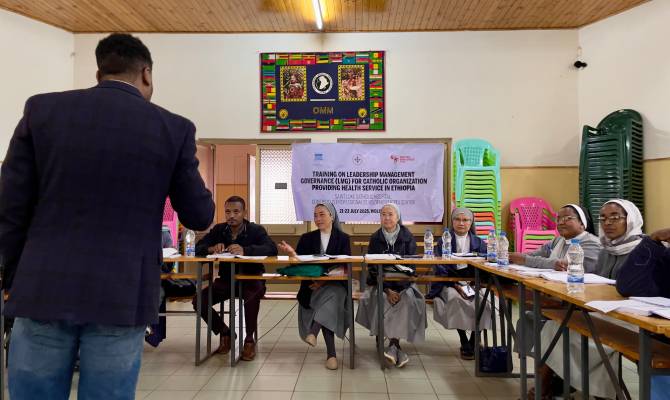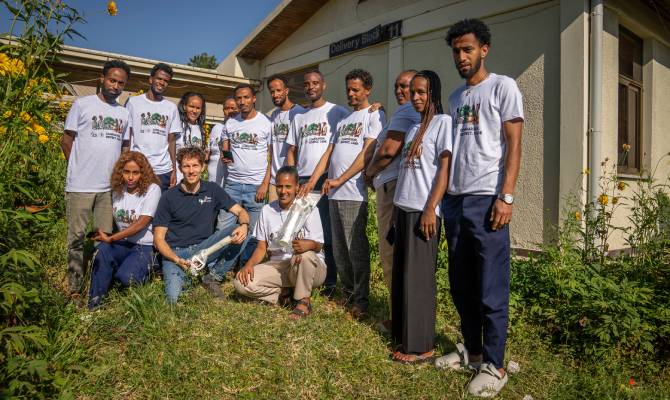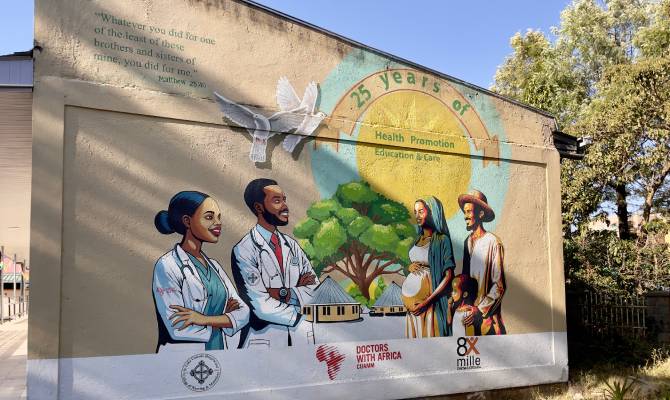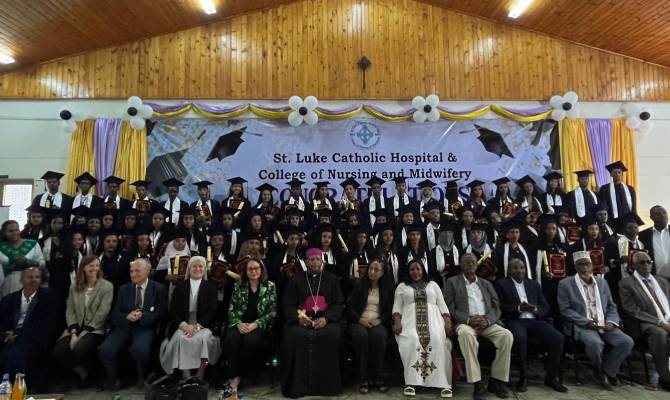A three-day training course designed to strengthen leadership, management, and governance skills among Catholic Sister health professionals has just come to an end in Wolisso, Ethiopia. The intensive program, tailored for those working in the health sector, aims to equip participants with the knowledge, skills, and attitudes necessary to lead and govern health systems more effectively.
In Ethiopia, as in many African countries, FBOs are crucial in delivering quality health services to the most vulnerable populations. Often located in the last mile, FBOs are frequently on the front lines of service delivery. They maintain close contact with local communities and are well-positioned to recognize and address the real needs of the poorest, often delivering services in remote areas. However, FBOs are frequently overlooked when it comes to supplies, human resources, and funding. Additionally, they may lack formal education and the necessary competencies to manage and lead health facilities effectively.
The St. Luke Hospital in Wolisso, where the training was hosted is indeed a model in terms of management and service provision. Since its inauguration in 2000, CUAMM has been supporting this Catholic Hospital which to date stands as a point of reference for the surrounding districts of Goro, Wolisso, and Wonchi.
The course brought together 34 Catholic Sister professionals from 14 zones across three different regions — Central Ethiopia Region, Oromia, and Tigray — identified by CUAMM through an extensive mapping process. Participants included Sisters from various Faith-Based Organizations (FBOs), serving in diverse roles such as managers, nurses, and health assistants, and working in health posts, health centres, and general hospitals. On this occasion, Ethiopian Bishop Lukas Fikre, CUAMM Director General Father Dante Carraro, and the Bishop of Padua and CUAMM President, Claudio Cipolla, visited the training to personally congratulate the participants for their unwavering commitment to health promotion.

The meeting offered an engaging learning experience focused on strengthening health systems and improving service delivery across Ethiopia. Through interactive presentations, group-based learning, personal reflection, project work, and guided portfolio development, participants explored key concepts such as Ethiopia’s healthcare environment, policies, strategies, and reforms; leadership and management practices; good governance in health programs and institutions and resource management.
To ensure maximum impact, the training included both formative and summative evaluations. Daily feedback, group exercises, and reflective activities helped assess ongoing learning. A final assessment — made up of a post-test (35%) and a team-based project (65%) — was offered to ensure participants had left with practical, applicable skills.
The course, offered by CUAMM with the financial support of Conrad Hilton Foundation represents a critical investment in building the capacity of Catholic health professionals to lead more effectively, manage resources efficiently, and strengthen health service governance across Ethiopia.
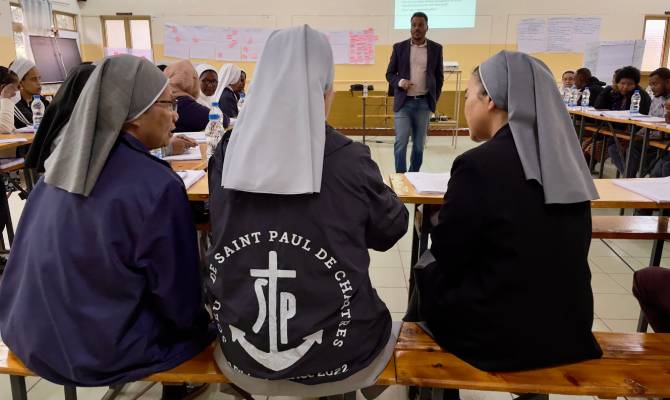
DISCOVER WHAT WE ARE DOING WITH FBOS ACROSS AFRICA

